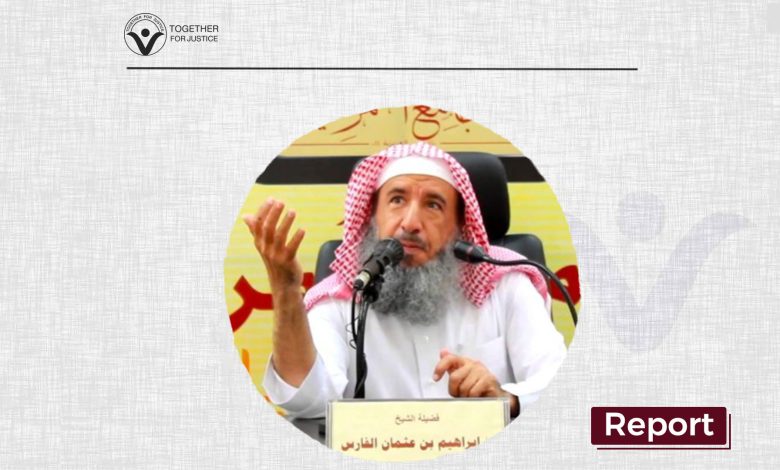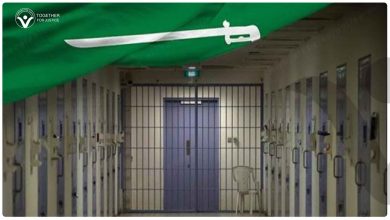Saudi Authorities Continue to Detain Academic Ibrahim Al-Fares Despite Completing Sentence in 2020

As Saudi Arabia presents itself as a nation on the path of reform and modernization under Crown Prince Mohammed bin Salman, the continued detention of academic and religious scholar Ibrahim Al-Fares raises serious concerns about the kingdom’s commitment to human rights and the rule of law. Now in August 2024, Al-Fares remains imprisoned despite having completed his three-year sentence, a stark reminder of the ongoing repression against those who dare to express dissenting views.
Ibrahim Al-Fares, an assistant professor at King Saud University in Riyadh, was arrested during the September 2017 crackdown that targeted a wide range of writers, thinkers, religious scholars, activists, and political dissidents. This sweeping campaign, led by Mohammed bin Salman, was part of an effort to consolidate power and silence any voices that might challenge the government’s narrative.
Al-Fares, known for his alignment with other defenders of rights and democracy in Saudi Arabia, was sentenced to three years in prison following a trial that lacked the most basic standards of justice. He was denied the right to legal representation and was unable to defend himself adequately.
Now, seven years after his initial arrest and despite the completion of his sentence in 2020, Al-Fares continues to be held in detention without any clear legal justification. This extended imprisonment not only violates his rights but also highlights the broader pattern of human rights abuses in Saudi Arabia. The arbitrary nature of his continued detention underscores the kingdom’s disregard for the rule of law and its ongoing repression of freedom of expression.
Freedom of expression and human rights are fundamental to the health of any democracy and are essential for cultural and intellectual diversity. The Saudi government has frequently promised reforms, claiming to modernize its legal system and protect the rights of its citizens. However, cases like that of Ibrahim Al-Fares cast serious doubt on these promises. The continued repression of individuals who express dissenting opinions shows that these reforms are, at best, superficial and, at worst, entirely disingenuous.
The international community must take notice of Al-Fares’ case and recognize it as part of a broader trend of human rights violations in Saudi Arabia. The prolonged detention of activists, academics, and religious figures without due process is a clear violation of international human rights standards. It is imperative that the Saudi government be held accountable for these actions and that pressure be applied to ensure the release of Al-Fares and others who have been unjustly detained.
Human rights organizations, like “Together for Justice,” have been vocal in their calls for the immediate release of Ibrahim Al-Fares and all other political detainees in Saudi Arabia. They have highlighted the inhumane conditions faced by many of these prisoners, who are often subjected to degrading treatment and denied access to legal recourse. The continued imprisonment of Al-Fares, despite the completion of his sentence, is a clear example of the kingdom’s strategy to silence dissent through fear and intimidation.
The detention of Ibrahim Al-Fares is not just an isolated case; it reflects the broader environment of repression in Saudi Arabia. The government’s continued use of arbitrary detention to silence critics and suppress free speech is incompatible with its claims of reform. If Saudi Arabia is truly committed to becoming a modern, progressive state, it must begin by respecting the basic human rights of its citizens, including the right to free expression and the right to a fair trial.
As the world continues to engage with Saudi Arabia, it is crucial that human rights are not overlooked in favor of economic or strategic interests. The case of Ibrahim Al-Fares serves as a poignant reminder of the need for sustained international pressure to ensure that the kingdom’s promises of reform translate into tangible improvements in the lives of its citizens. The release of Al-Fares and other political detainees would be a critical first step toward demonstrating that Saudi Arabia is serious about its commitment to human rights and the rule of law.




